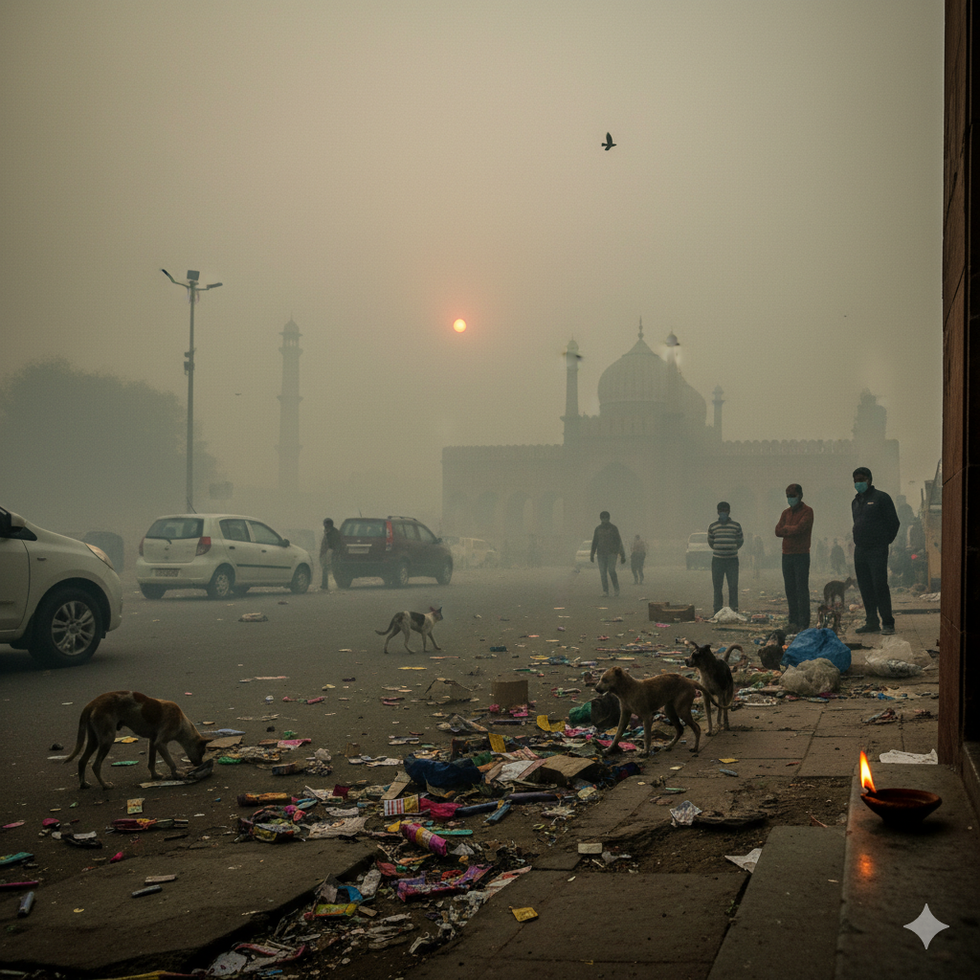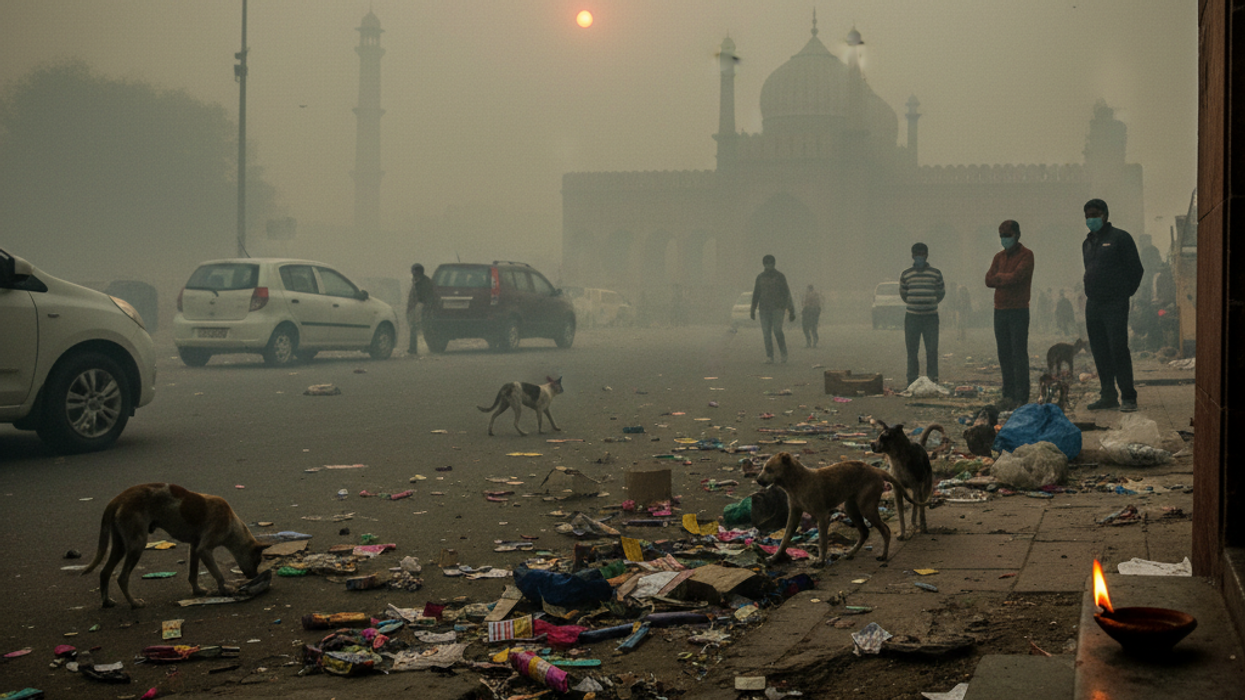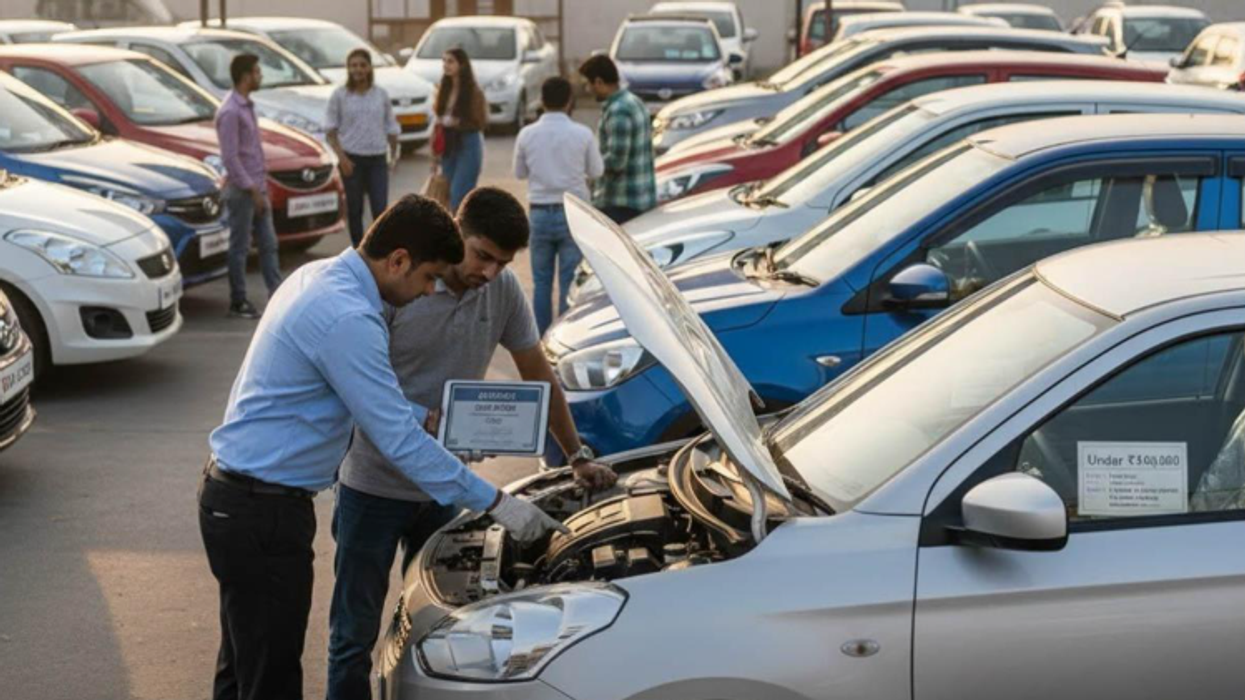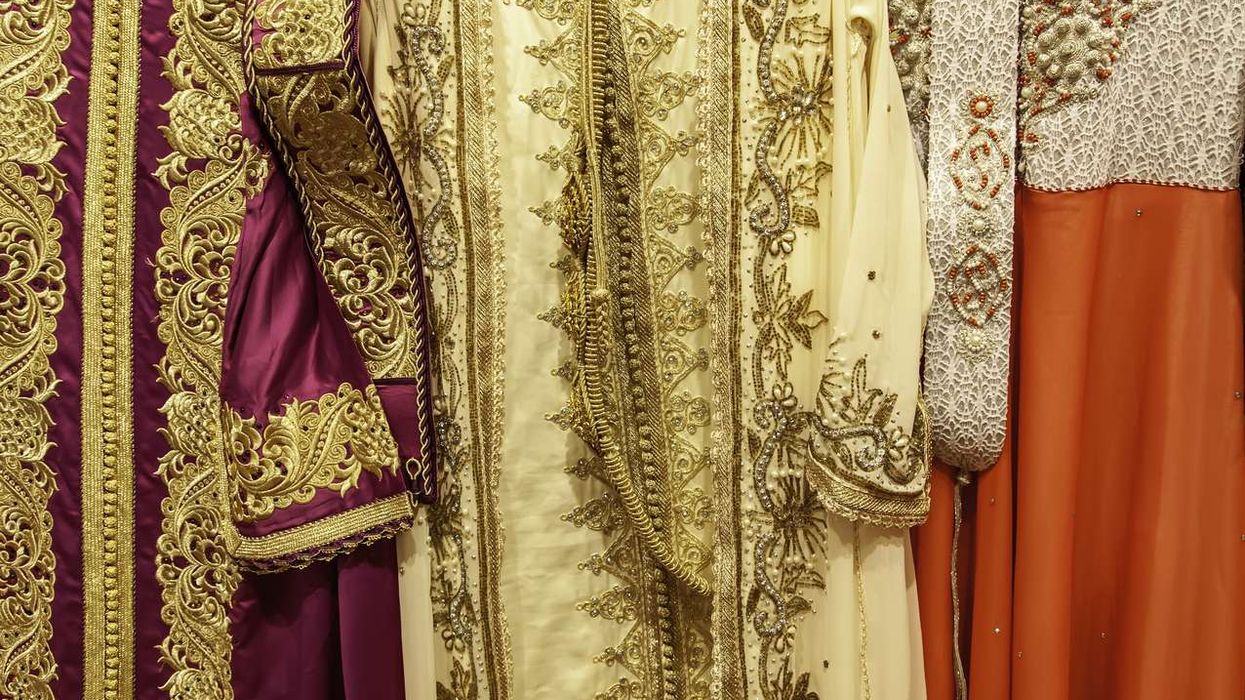As the celebrations of Diwali come to an end in Delhi, the consequences of massive firework displays are coming to light. The streets of the capital are covered in debris from exploded firecrackers, and the acrid smell of smoke continues to linger.
Delhi, already known as the world’s most polluted city, now faces an even worse situation. The air quality has soared to ten times above the safe limit defined by the World Health Organisation. Tens of thousands of people suffer from respiratory problems and other ailments due to the city’s toxic air. It is estimated that around 10,000 people die prematurely each year because of Delhi’s pollution.

But it’s not only humans who suffer — animals endure immense distress too. The noise of firecrackers is unbearable for them. While humans hear frequencies between 20 Hz and 20,000 Hz, pets can detect sounds as high as 45,000 Hz to 67,000 Hz. For them, fireworks are terrifying. Domestic animals experience psychological trauma, panic, and noise phobia. Dogs and horses can even develop tinnitus and hearing loss. Birds, squirrels, and frogs are also affected — many birds fly from their nests in fear and never return.
According to the RSPCA, thousands of pets suffer each year during fireworks season — around 7,868 cats and 9,023 dogs within just a six-mile radius could be affected.
Another serious concern is the disturbance fireworks cause to neighbours. Complaints from residents about late-night noise are increasing, creating a negative impression of the Hindu community — something that would be deeply unfortunate, as Hindus are known to be respectful and law-abiding citizens. The last thing we need is for people to generalise and say, “They are all the same.” All the goodwill built over time can be lost in moments.
Similarly, the practice of taking to the streets and blaring car horns when India wins a cricket match is inconsiderate and disruptive. Such behaviour doesn’t win friends and must stop. Community and religious organisations need to take proactive steps to discourage these actions.
Although fireworks were officially banned in Delhi, some Hindus view this as bias against their community. However, reform has always been a core strength of Hinduism. If a practice harms our health, animals, and environment, there’s no reason to view stopping it as an attack on faith.
When Lord Rama returned to Ayodhya, people lit lamps — there was no mention of fireworks. That tradition of light symbolised joy, peace, and purity, not pollution or noise. The same logic applies to burning Ravana’s effigy. Ravana, though an antagonist in the Ramayana, was also a great scholar. As he lay dying, Lord Rama sent Lakshmana to learn from his wisdom. If Rama respected him, who are we to burn his effigy? This act contradicts the Hindu ethos of ahimsa (non-violence), respect, and gentleness.
Let us resolve to celebrate Diwali without fireworks or effigy burning — and in doing so, uphold the essence of Hindu Dharma.
(Nitin Mehta is a writer and commentator on Indian culture and philosophy. He has contributed extensively to discussions on Hinduism, spirituality, and the role of Gurus in modern society. You can find more of his work at www.nitinmehta.co.uk.)
(The views of the author need not represent the views of Eastern Eye)




